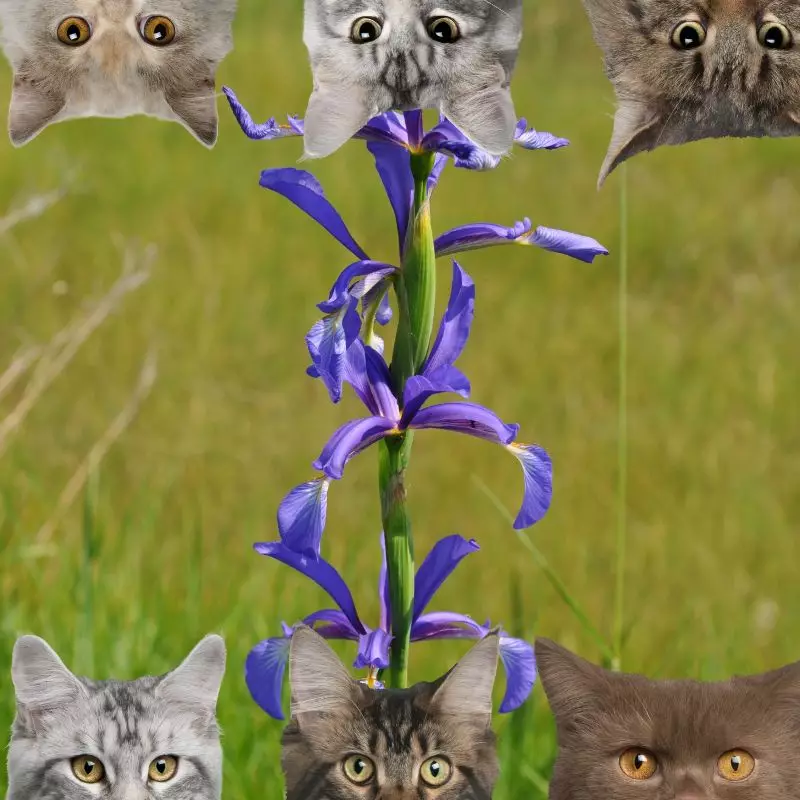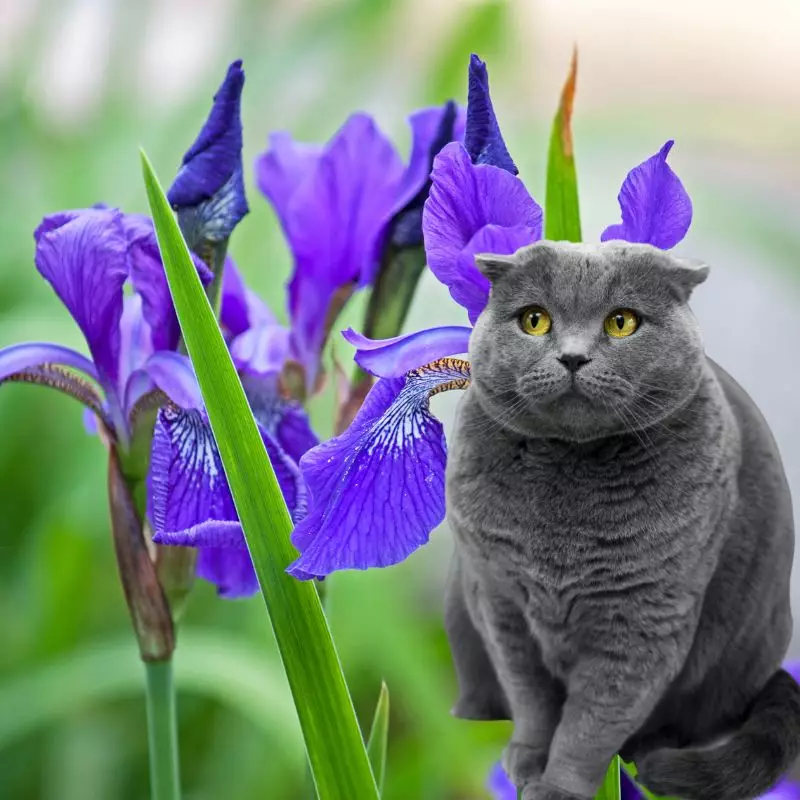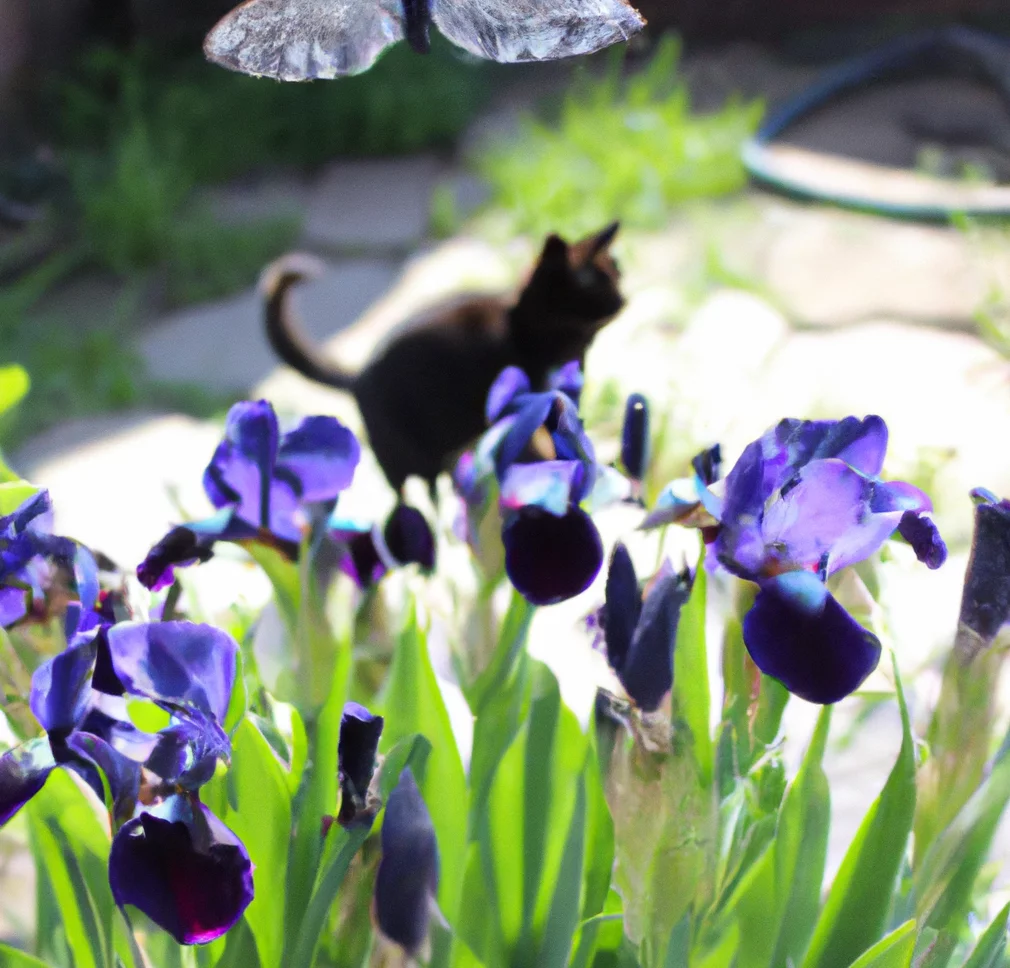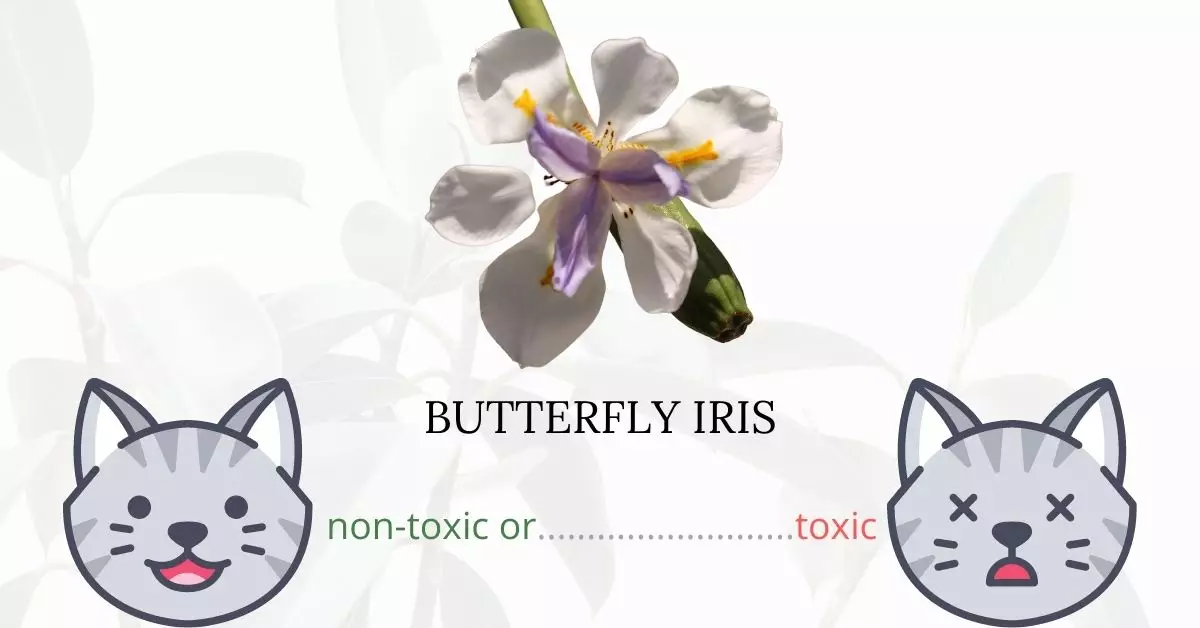Yes, Butterfly Irises are toxic to cats. Having Butterfly Iris plants at home is not advisable for those with feline companions, as all parts of this beautiful plant, especially its rhizomes, roots, and bulbs, contain harmful chemicals that can be dangerous for cats. The leaves, flowers, and stems of Butterfly Iris are also poisonous. It’s crucial to ensure that its bulbs and other parts are kept well out of reach, especially from kittens who are naturally curious and prone to nibbling on unfamiliar items. Should your cat ingest any part of the plant, it is essential to seek immediate veterinary care.
This article is written in collaboration with a team of experienced DVMs (doctors of veterinary medicine). With their insights and expertise, we are able to provide accurate and up-to-date information regarding the potential risks associated with various plants, Butterfly Irises in this instance. Additionally, our research includes information gathered from high-authority websites such as ASPCA and PetMD to ensure the most comprehensive understanding of plant-related risks for pets.
Clinical Signs of Butterfly Iris Poisoning in Cats

When a cat comes into contact with or ingests parts of the Butterfly Iris plant, it may exhibit certain clinical signs due to the toxic components present in the plant. Understanding these signs and the reasons behind them can help owners respond appropriately and promptly:
- Vomiting: This is a direct response to the ingestion of the toxic substances found in the Butterfly Iris. When consumed, the harmful chemicals irritate the cat’s stomach lining, leading to an urge to vomit as the body attempts to expel the toxins.
- Nausea: Nausea often precedes vomiting. The cat might appear restless, drool, or repeatedly swallow. This is due to the discomfort and irritation caused by the plant’s toxins in the stomach.
- Pain in the abdomen: The toxic substances in the Butterfly Iris can lead to inflammation of the stomach and intestines. As a result, a cat may show signs of abdominal discomfort, such as hunching over, crying out, or being reluctant to be touched around the belly area.
- Diarrhea: As the body tries to rid itself of the toxic elements, it might increase bowel movements, resulting in diarrhea. The accelerated passage of contents through the intestines due to the irritation can cause loose or watery stools.
- Oral ulcers: Chewing or biting the plant can cause direct contact of the toxins with the oral mucosa. This can lead to the formation of painful sores or ulcers in the mouth, making the cat reluctant to eat or drink.
- Dermatitis: If a cat’s skin comes into direct contact with the sap or crushed parts of the Butterfly Iris, it can lead to skin irritation known as dermatitis. You might notice redness, swelling, or itching in the area that came into contact with the plant.
In any instance where you suspect your cat has contacted or consumed the Butterfly Iris plant, it’s essential to consult with a veterinarian to ensure the best care and outcome for your feline friend.
First Aid and Treatment of Butterfly Iris Poisoning in Cats

Relieving the symptoms that your cat is experiencing is the primary goal of your veterinarian. Vomit induction, IV fluids, activated charcoal, and gastric lavage may be used by the vet to remove toxins from your cat’s system. The type of therapy that your vet may do may vary depending on the severity of your cat’s condition.
Recovery from Butterfly Iris Poisoning in Cats

Your cat’s recovery from Butterfly Iris poisoning is generally positive as long as he or she was given prompt medical attention. You may need to take your cat to the vet for follow-up visits to ensure that he or she is healing properly.
Prevention of Butterfly Iris Poisoning in Cats
Avoid bringing Butterfly Iris inside your home. If you receive this plant as a gift, it is best to re-gift it to others with no cats or dogs at home. Make your cat stay indoors to reduce the risk of exposure to Butterfly Iris and other toxic plants.
If you love plants but have cats at home, check out these lists:





